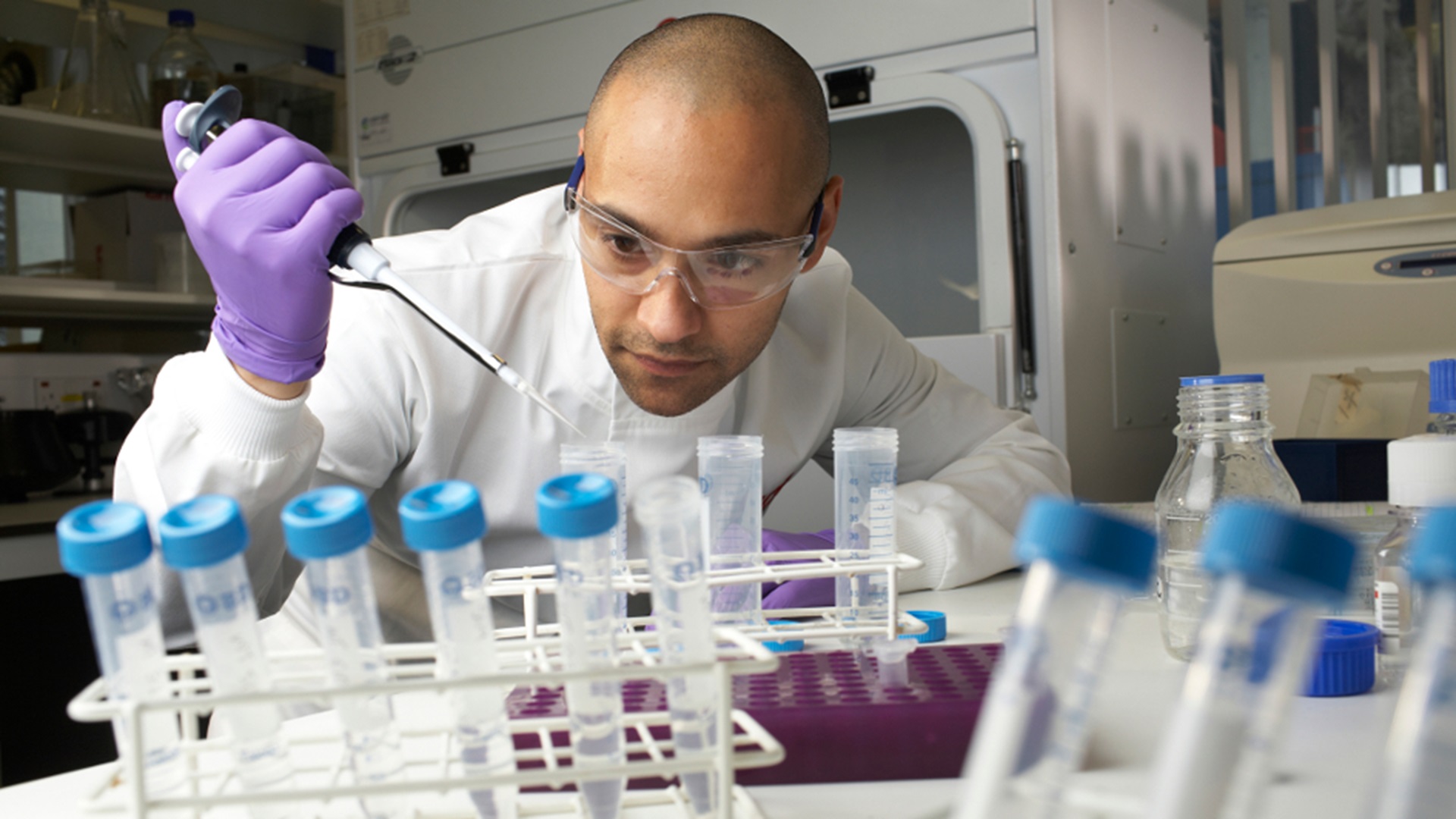
Opportunity: Molecular subtyping and predictive test for personalising colorectal cancer
Professor Anguraj Sadanandam
ICR lead scientists/inventors:
Professor Anguraj Sadanandam
Opportunity at a glance
The Institute of Cancer Research, London, is seeking partners to continue the development of a colorectal cancer gene signature as a clinical test for predicting therapy response (e.g. anti-EGFR therapies, including monoclonal antibodies) and to collaborate on biomarker-led R&D programmes.
The comprehensive gene profiling assay could help guide treatment selection for patients, reducing the risk of unnecessary side effects from therapies that are unlikely to work. It could also help patients whose disease is highly likely to respond can gain access to these drugs.
Background
Several targeted therapies are available for the treatment of metastatic colorectal cancer (mCRC), including monoclonal antibodies targeting the epidermal growth factor receptor (EGFR). In the UK, current NICE guidelines recommend RAS genetic testing for RAS (NRAS and KRAS) and BRAF V600E mutations, to select those people with mCRC most likely to benefit from anti-EGFR targeted therapy.
However, the presence of these mutations selects for cancers that are unlikely to respond: around 30-50% of mCRC patients with wild-type RAS respond well to treatment with chemotherapy plus anti-EGFR. The current lack of appropriate biomarkers and companion diagnostic assays to predict anti-EGFR response puts patients at potential risk of unnecessary side effects.
About the programme
Researchers at the ICR initially identified six molecular subtypes of CRC based on gene expression profiling. These original CRCAssigner(TM) (CRCA) subtypes, which are based on a signature of 786 genes, were validated in multiple studies and subsequently consolidated into four consensus molecular subtypes (CMS): CMS1 (associated with inflammatory subtype); CMS2 (enterocyte and TA); CMS3 (goblet-like) and CMS4 (Stem-like).
An association between molecular classification and response to an anti-EGFR drug (cetuximab) was observed in CRC patients with liver metastases. Uniquely, the molecular subtypes and biomarkers were capable of predicting both patients who did and did not respond to anti-EGFR therapy.
The team has since developed and extensively tested CRCAssigner(TM)-38, which analyses the activity of a reduced panel of 38 genes using RNA biomarkers and several different gene expression profiling platforms (including the NanoString® Technologies platform). The technology uses a modified protocol, reducing costs by around one-third compared to the standard assay.
The team has validated the performance of the assay using more than 1,200 CRC samples along with an AI algorithm to assign patients to specific molecular subtypes. They have carried out further validation retrospectively in >300 patients from a larger clinical trial cohort, with analyses showing similar results.
Key features
- The development team is working to translate advances in the molecular characterisation of colorectal cancers to successfully implement personalised cancer treatment in the clinic, and guide patient stratification on biomarker-led clinical trials.
- Enabled by an artificial intelligence (AI) algorithm, CRCAssigner(TM)-38 is a multi-gene expression signature for subtyping colorectal tumours.
- Potential applications include stratifying patients with metastatic colorectal cancer (mCRC) into subgroups who could benefit from different treatments, including the ability to predict response to anti-EGFR therapies.
- The assay requires <100ng RNA extracted from routine diagnostic formalin-fixed paraffin-embedded (FFPE) tumour samples, and the results can be delivered in less than ten days.
Commercial opportunity
The ICR team is now seeking commercial partners to support the development of the biomarker to the clinic. The assay has been validated with a large number of retrospective clinical samples to warrant its use in R&D programmes and biomarker-led clinical trials, and the team at the ICR is working towards CE-marking to facilitate the development of the assay as a clinical test.
Next steps require validation in a clinically accredited laboratory and prospective validation of predictive value in a clinical trial setting, to then pursue regulatory approvals, clinical translation and commercialisation. The assay’s potential clinical value is reinforced by the similar PAM50 (Prosigna®) classifier for the intrinsic breast cancer subtypes, which has been implemented into multiple international clinical practice guidelines based on its prognostic value.
Key publications
(1) Sadananadam et al. A colorectal cancer classification system that associates cellular phenotype and responses to therapy. Nature Medicine 2013; 19, 619-625.
(2) Guinney et al. The consensus molecular subtypes of colorectal cancer. Nature Medicine 2015; 21, 1350–1356.
(3) Regulan et al. Analytical validation of multiplex biomarker assay to stratify colorectal cancer into molecular subtypes. Scientific Reports 2019; 9, 2665.
(4) Borelli et al. Prognostic and predictive impact of consensus molecular subtypes and CRCAssigner classifications in metastatic colorectal cancer: a translational analysis of the TRIBE2 study. ESMO Open 2021; 6(2): 100073.
Contact:
Joo-Hee Sir PhD
Business Development Manager
The Institute of Cancer Research, London